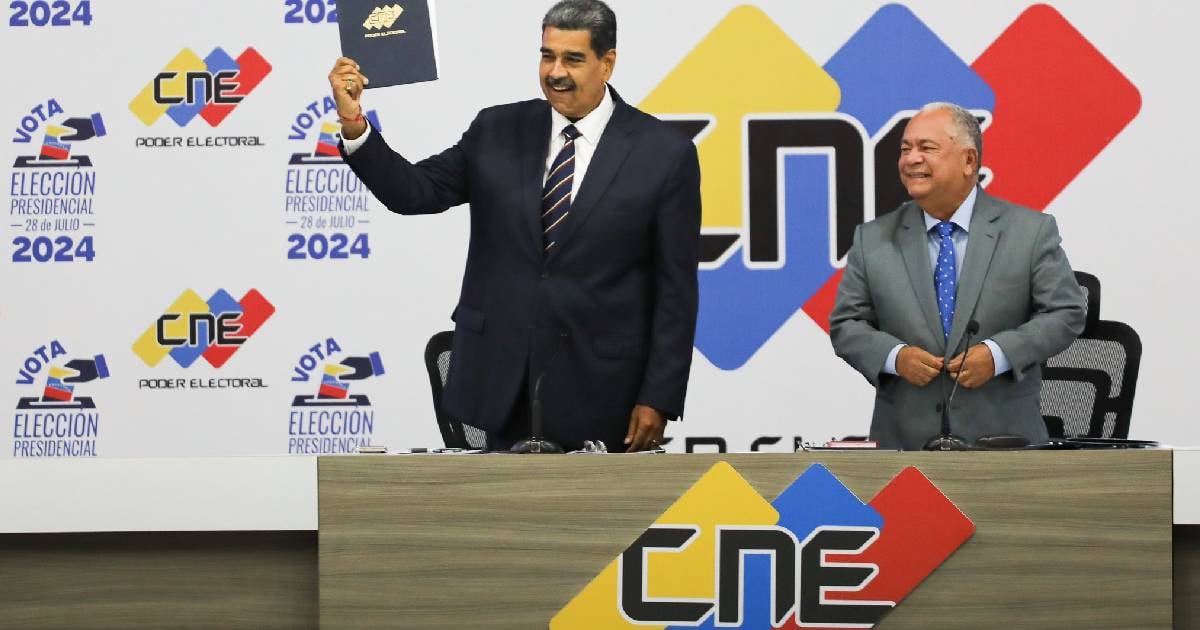Florida Republican Senators Rick Scott and Marco Rubio are set to introduce a bill in the U.S. Senate aimed at raising the reward for information leading to the arrest of Venezuelan dictator Nicolás Maduro from $15 million to $100 million. According to El Nuevo Herald, the "Stop Maduro Act" ensures that U.S. taxpayer money will not be used to pay the bounty, following the charges brought against Maduro by the U.S. Department of Justice in 2020.
The bill proposes to utilize assets already seized in the United States from Maduro and his allies, which total approximately $450 million, as detailed by Scott's office. Scott announced the proposal on the social media platform X, formerly known as Twitter. Senator Rubio also used the platform to disclose the initiative.
Confiscation of Maduro's Assets
Earlier this month, federal authorities confiscated an aircraft frequently used by Maduro, valued at $13 million, which had been detained in the Dominican Republic. Additionally, Florida Republican Congressman Mario Díaz-Balart will introduce complementary bipartisan legislation in the House of Representatives. This legislation is supported by Democrat Debbie Wasserman Schultz and Republicans Carlos Giménez, María Elvira Salazar, Mike Waltz, Puerto Rico's representative Jenniffer González Colón, and New Jersey Republican Chris Smith, as reported by El Nuevo Herald.
The U.S. government, along with other international entities, has accused Maduro of rigging the presidential elections held on July 28 with the assistance of the Venezuelan Electoral Council and Supreme Court, both of which are under his control. Despite evidence indicating his loss to opposition candidate Edmundo González, Maduro was declared the winner. The opposition published voting receipts from over 80 percent of the machines online, showing that González won with at least 67 percent of the vote. However, the Electoral Council has yet to release the official results, despite repeated requests from foreign governments.
"The Venezuelan people overwhelmingly voted for a new day of freedom and democracy on July 28 when they elected Edmundo González, in an effort led by opposition leader María Corina Machado," stated Senator Scott. "It's clear that Maduro will not step down voluntarily, and I urge my colleagues to support this bill to free Venezuela and the world from Maduro's oppression and allow President-elect González to restore democracy, freedom, and opportunities to the country," he added, as quoted by El Nuevo Herald.
González was forced into exile in Spain last Sunday after receiving threats of arrest from Maduro's officials. In a video released on Wednesday, he stated that he was coerced into signing a letter accepting Maduro's supposed electoral victory to leave the country, under the threat of imprisonment. "It was either sign or face the consequences," he recounted about the tense meeting at the Spanish ambassador's residence in Caracas. "It was hours of intense coercion, blackmail, and pressure," he described.
Last week, the U.S. Treasury sanctioned 16 Venezuelan officials from the National Electoral Council and Supreme Court who assisted Maduro in the electoral fraud. On Thursday, the European Parliament officially recognized González as the elected president, a step that the Biden administration has yet to take, without providing an official explanation, noted El Nuevo Herald.
Frequently Asked Questions about the Bounty Increase on Nicolás Maduro
This section aims to address common questions regarding the proposed increase in the bounty for information leading to the arrest of Nicolás Maduro.
What is the current reward for information leading to Maduro's arrest?
The current reward is $15 million.
How will the proposed increase to $100 million be funded?
The increase will be funded using assets already seized in the United States from Maduro and his allies, amounting to approximately $450 million.
Who is supporting the new legislation?
The bill is supported by a bipartisan group of lawmakers including Rick Scott, Marco Rubio, Mario Díaz-Balart, Debbie Wasserman Schultz, Carlos Giménez, María Elvira Salazar, Mike Waltz, Jenniffer González Colón, and Chris Smith.
